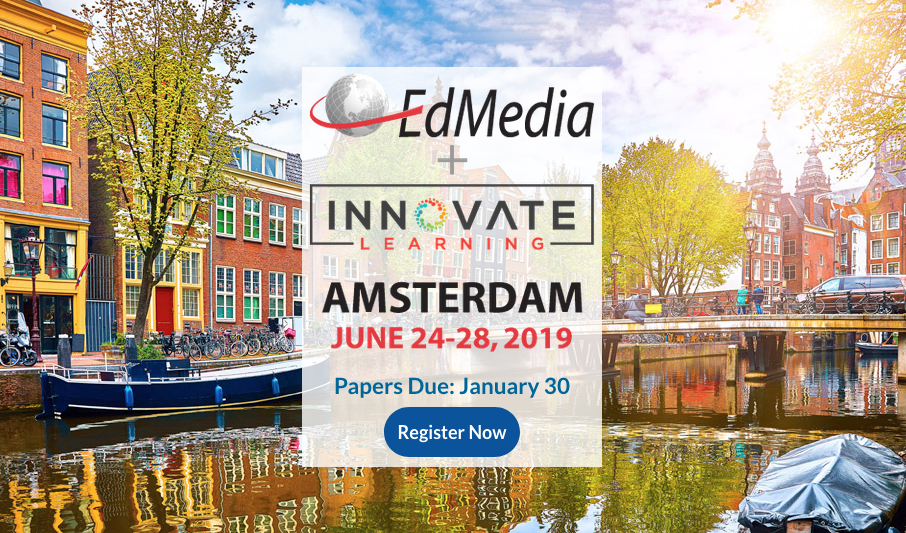Our publication about „Introducing Electrical Engineering to Children with an Open Workshop Station at a Maker Days for Kids Event“ at this year ED-Media conference in Amsterdam is online available:
The world is changing through the Digitalization trend such as Industry 4.0 where manufacturing transforms from quantity production to individual production. For enabling this transition, we need more skilled professionals in STEAM (Science, technology, engineering, arts, mathematics) related fields. For this reason, in the last years special STEAM projects have been introduced inside and outside the school environment to attract more children to these fields. One of them is the Maker-Days-for-Kids-concept where a temporary Maker Space is created based on open workshops. In this publication, we introduce a novel electrical engineering station concept for a temporary Maker Space for children. The station will contain basic and advanced workshops to introduce typical tools and methodologies of the electrical engineering domain. Furthermore, we also offer statistics about the station at the event, challenges the attendees had to struggle with as well as the lessons we learned during the event. The evaluation will be used to improve the current workshop concept for future events to increase the interests in electrical engineering.
Reference: Strasser, A., Grandl, M. & Ebner, M. (2019). Introducing Electrical Engineering to Children with an Open Workshop Station at a Maker Days for Kids Event. In J. Theo Bastiaens (Ed.), Proceedings of EdMedia + Innovate Learning (pp. 790-799). Amsterdam, Netherlands: Association for the Advancement of Computing in Education (AACE)


